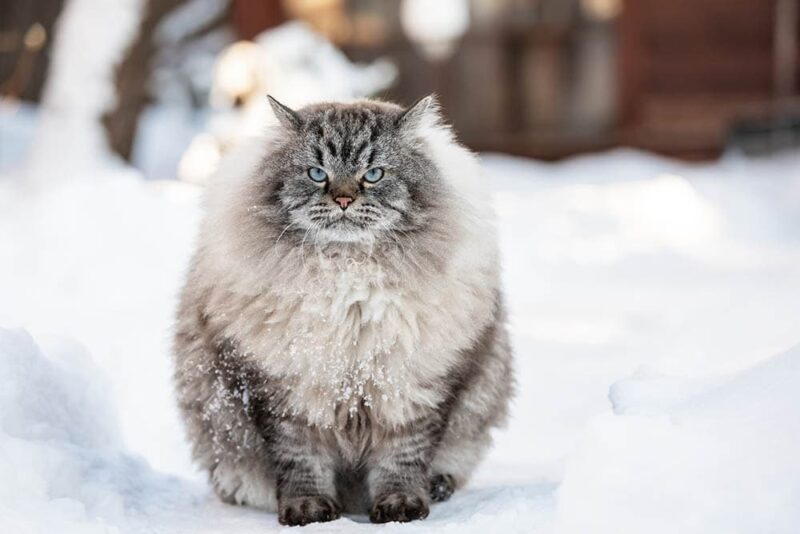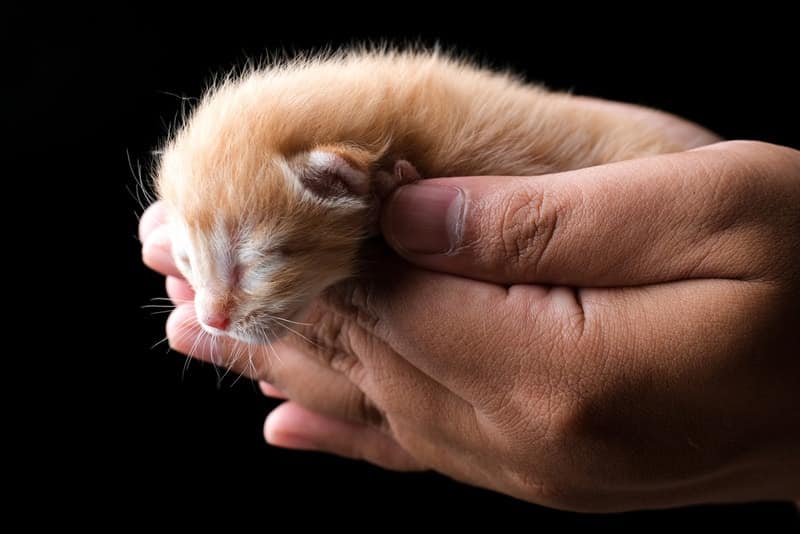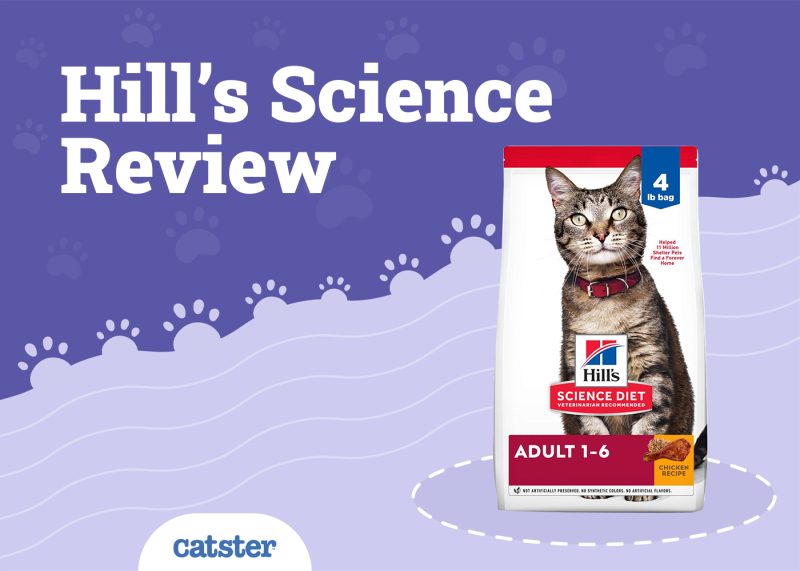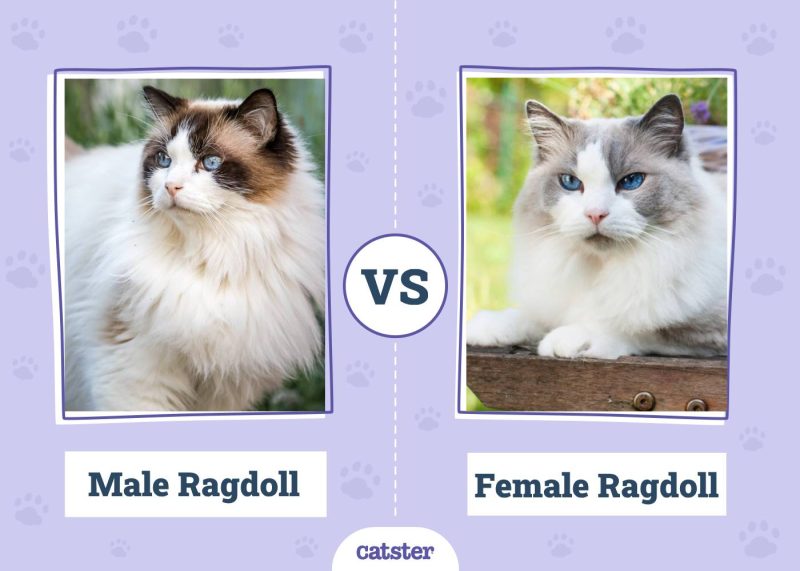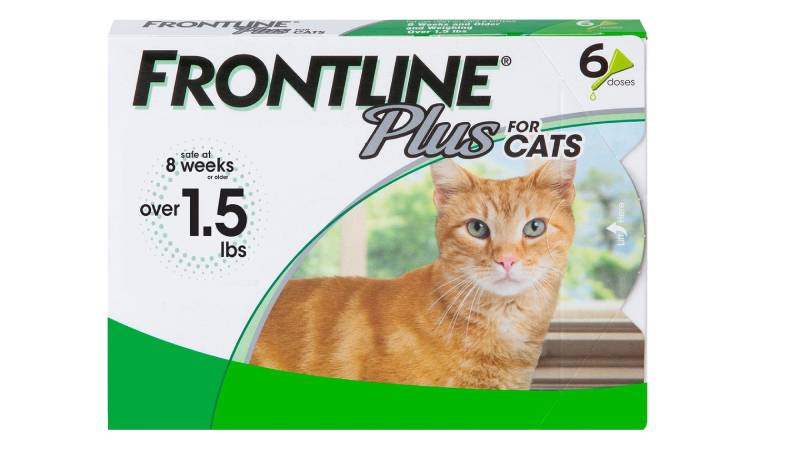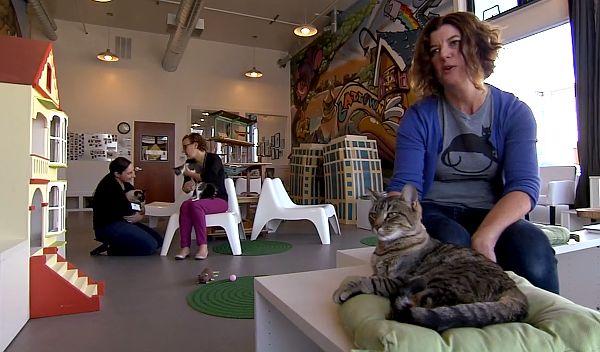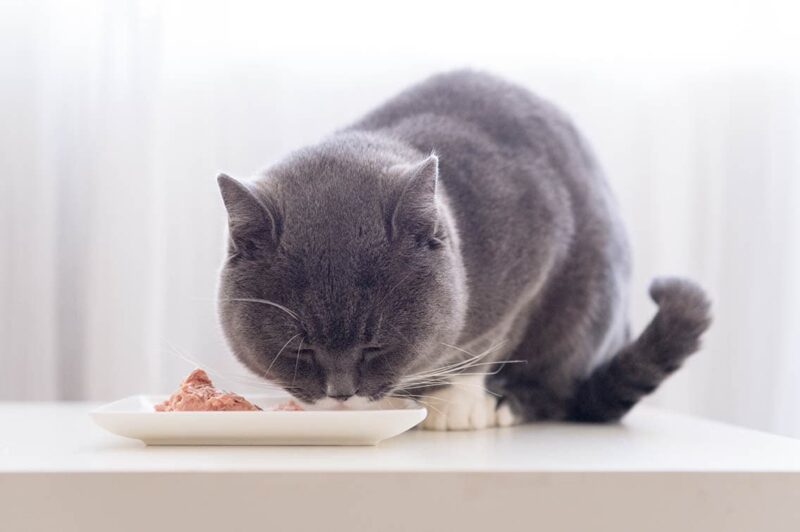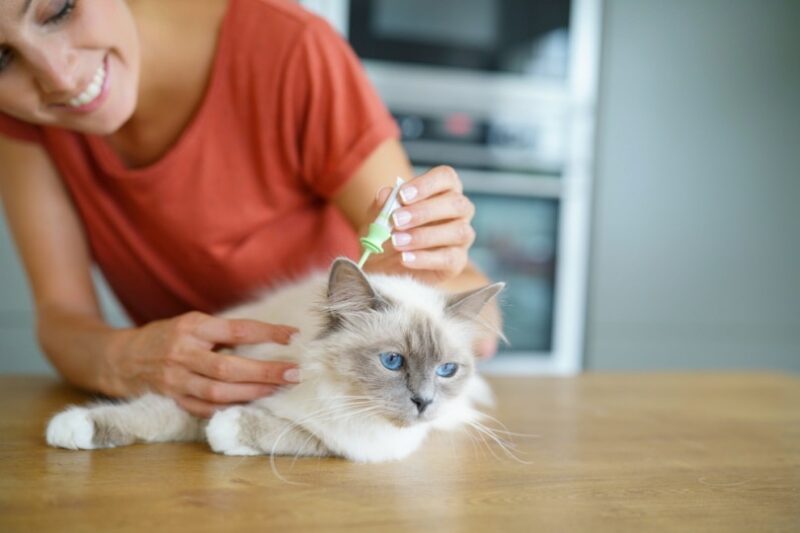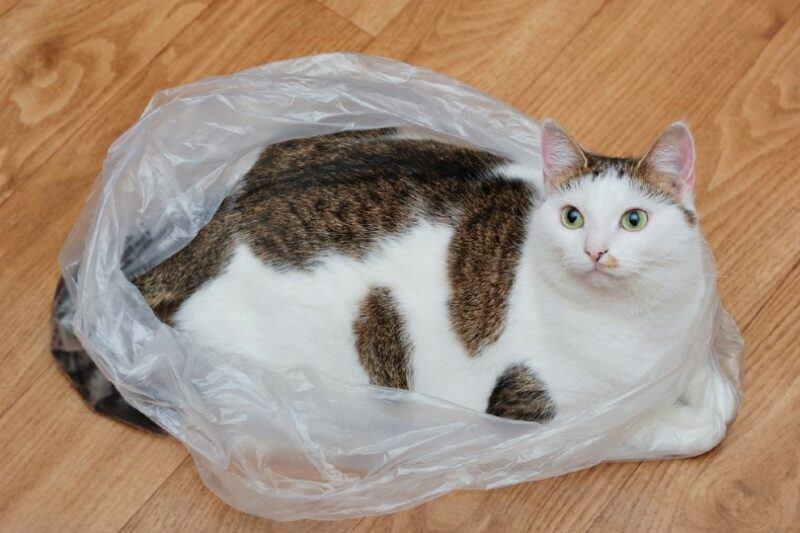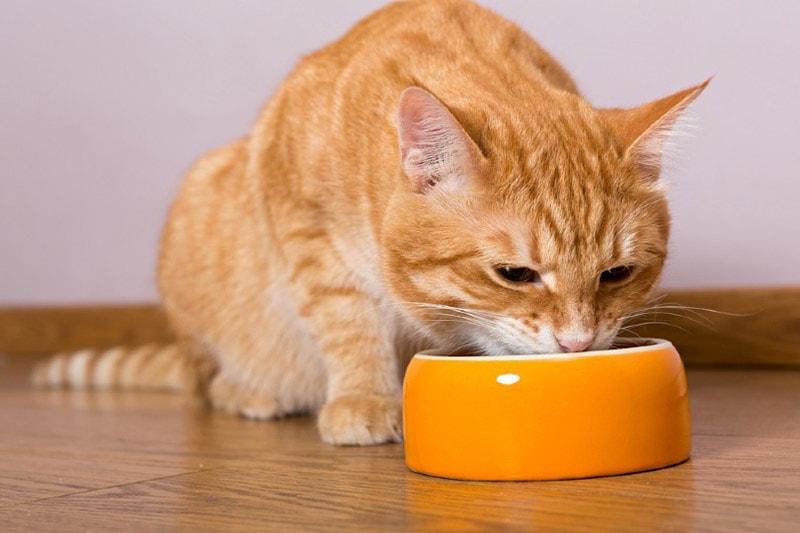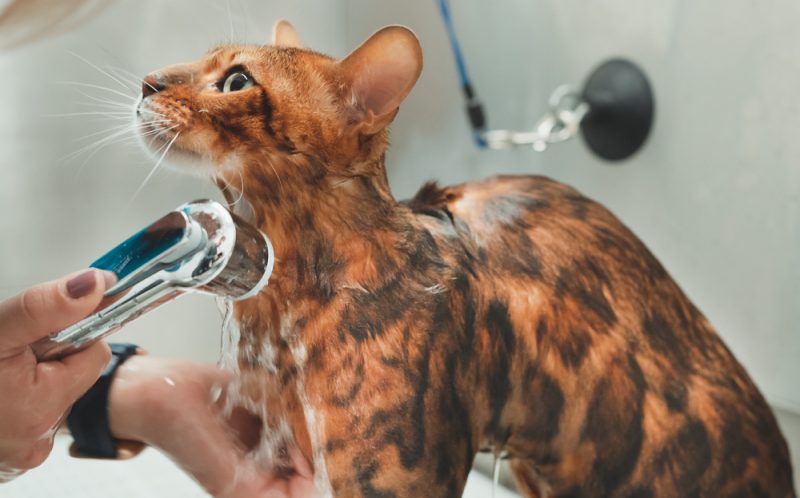Humans tend to gain weight in the winter because it’s much harder to get your daily exercise when stepping outside might cause you to slip, fall, and eat the icy pavement. Cats also tend to gain weight during the winter, but it has less to do with a lack of exercise. Cats sleep at least 18 hours every day. So, it’s not like they exercised particularly intensely, to begin with. However, your cat may have packed on a few pounds last winter. Curious to know why? Read on!

The Evolutionary Advantage of Winter Weight Gain
Winter weight gain has ties back to our beginnings as hunter-gatherers. Before the dawn of agriculture, humans had to hunt for and gather their food like any other animal, and during the winter, food is scarcer and harder to find. Thus, humans and other animals naturally evolved to overeat to offset winter starvation effects. A fat animal can live off its fat stores longer than a skinny one, and since food is harder to find in the winter, an animal is inclined to attempt to grow fat to offset the risk of winter starvation.
Humans’ agricultural and architectural developments have allowed them to offset the need for winter overeating physically. Still, this doesn’t undo the millions of years of evolution that tell us on a biological level that we need to eat a tremendous amount of calories just in case we don’t get to eat next week.
Since cats need to exist on a diet comprised of about 70% animal proteins (though the figure varies from cat to cat), their diet is even harder to manage during the winter when much of their prey goes into a state of hibernation.
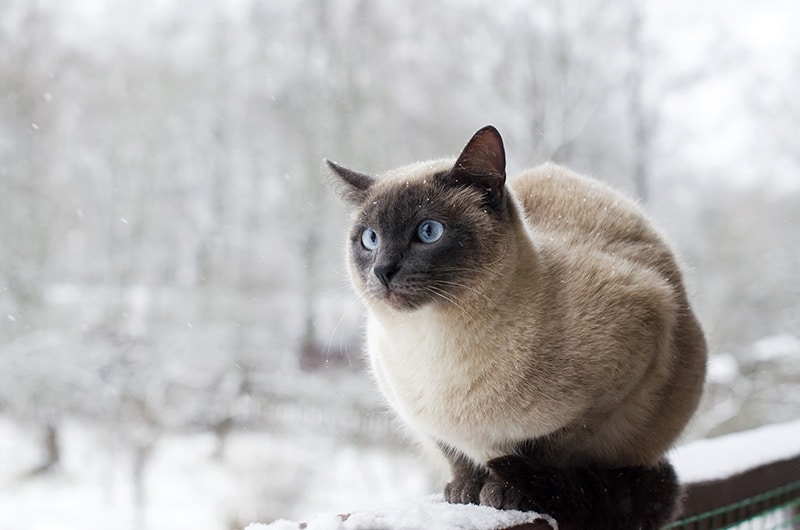
Preventing Winter Weight Gain
The best way to deal with winter weight gain is not to gain the weight first. This is true for both humans and cats. So, helping your cat avoid winter weight gain will be easier than helping them lose the weight they gain, especially since cats tend to view exercise as the work of the devil himself.
House cats tend to be used to lazing around. They lead luxurious lives that we can all be envious of. However, a dash of sleeping, getting up to have a snack, and going back to sleep ad nauseum is not conducive to not gaining weight. Feral and wild cats have to hunt for their food. So, they don’t get just to graze as much as they want and sleep; they’re forced to exercise.
You can help your cat avoid winter weight gain by encouraging them to exercise. While cats may abhor exercise, they like to play with their favorite humans. So, playing with your cat daily can help them get that vigorous exercise they need to offset their natural desire to eat more during the winter.
You can also portion out your cat’s food rather than letting them graze all day. This prevents them from overeating by brute force by physically limiting their caloric intake.
Food puzzles are another excellent way to limit your cat’s caloric intake. By forcing your cat to work for their food, you make it more arduous for them to eat, and they’ll naturally eat less. Try food balls and hiding small portions of food around your house for your cat to “hunt” for.

Final Thoughts
Winter weight gain can be a huge problem, and prevention is the best medicine. If your cat has struggled with weight gain, food puzzles and increased exercise can help them burn off some of those calories. If you’re a new cat owner, consider portioning your cat’s food year-round so they’re used to the system when winter rolls around.
Featured Image Credit: Dmitry Naumov, Shutterstock
